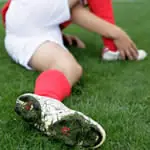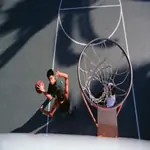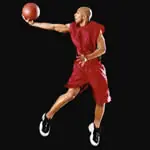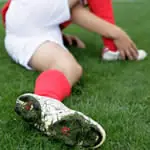John Wooden offers a great lesson. He says, "It's what you learn after you know it all that counts." Wooden, as great as he was, always remained open and teachable when it came to the game of basketball. And when it comes to the art of passing, we must do the same. So let me give four quick reasons every player should practice passing with one hand.
Make Practice Harder
First things first, I do not suggest that all players perform one-hand passes in games. It is much riskier to make a one-hand pass. Where as a two-handed pass can be pulled back if need, a one-handed pass is final. The decision is made. Second, it is much harder to throw an accurate pass with only one hand.
That being said, I recommend practicing one-handed passes to each and every player. Why? Because the first rule of practice is this: make practice hard so the game is easy. Players should practice passing with one hand, just as players should practice dribbling two balls. If a player can dribble two basketballs with high energy and with great execution, then dribbling one basketball will be a piece of cake. Not only will their skills be better, but they will have more confidence as a result of their demanding training. The same is true of passing.
If a player can pass off the dribble with one hand with accuracy in practice, then they will definitely have the ability to pass accurately with two in games. On top of that, their confidence as a passer will be through the roof.
Ambidexterity
Very few players are born with the natural ability to use both hands equally, but every player can become ambidextrous to some extent. Therefore, the more a player forces him or herself to train both hands equally, the better each hand will get.
Practicing one-handed passes will not only make you a better passer, it will make your weak-hand dribbling stronger, and you will become an even better finisher around the basket, among other things, because you will be better with both hands. You will be amazed by the improvement of the rest of your game just by forcing both hands to individually pass the basketball.
Game Execution
Finally, you should practice passing with one hand, so you will actually have the ability to do so in a game. Just as it sometimes necessary to make a behind the back pass, or an imaginative finish at the basket, it is sometimes absolutely necessary to make a one-handed pass in a game. At times, it is the only way to get the ball to a shooter on time and on target.
The game of basketball is made up of inches and seconds. Sometimes the window of opportunity will be closed if a player has to take the time to pass with both hands. Pure and simple, it is a split second faster if a player can pass with one. Players who can't do so, will have limitations in crunch time.
No Limits
As players, we should never put limits on our game. We want to remain fundamental, but we also want our bodies to have the ability to do exactly what is required to make the best play each and every time. That's why practicing one-handed passes is so crucial. Confidence will be gained, both hands will become more equal, and at the very least, we will never be limited by what we mistakenly labeled "not fundamental."







Discuss This Article